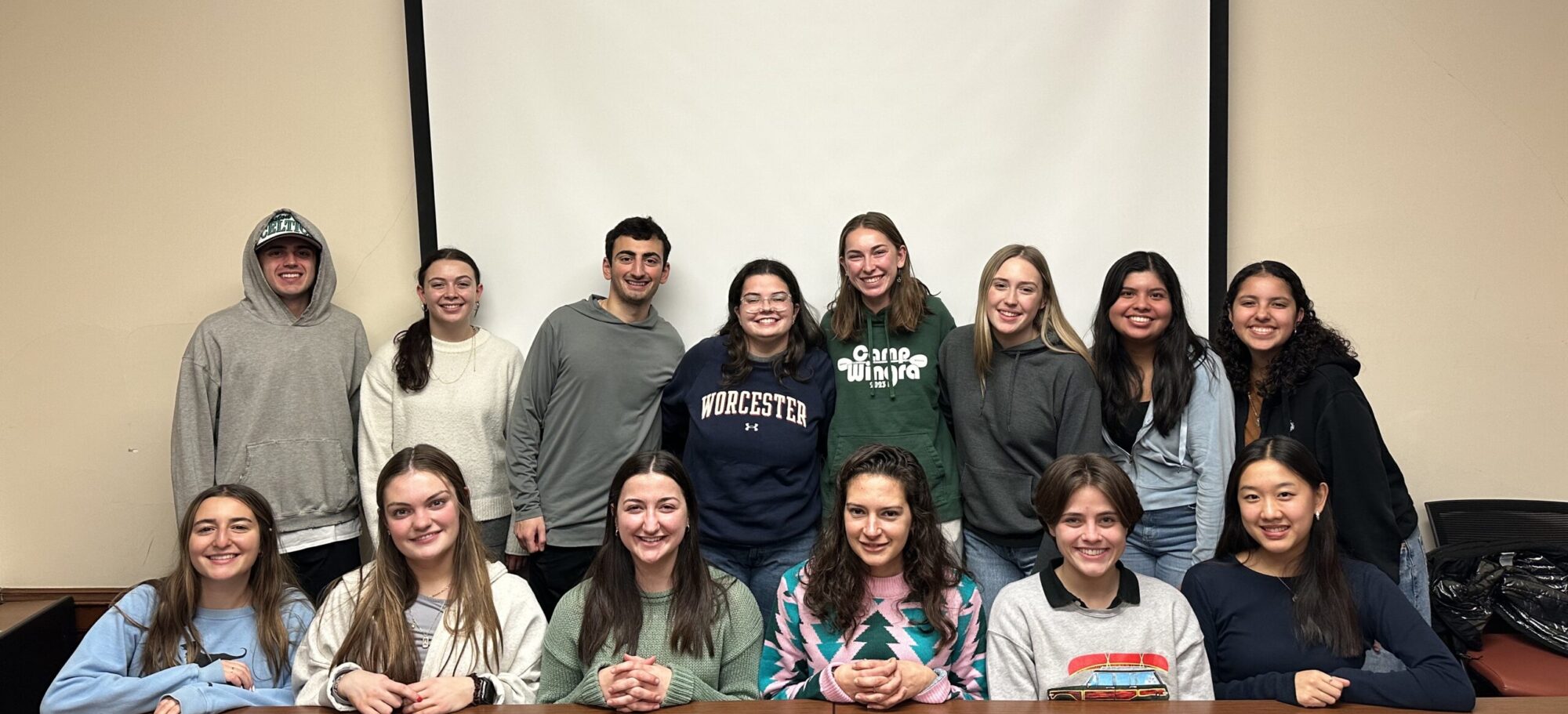Reflections on my first year
by Isabelle Jenkins ’10, Assistant Director of the Donelan Office
Six years ago, I had my very first interaction with the Donelan Office of Community-Based Learning. I was a junior at Holy Cross, and taking my first elective, Intro to Women’s and Gender Studies (as a pre-med student, I had very little room in my course schedule). I elected to do an on-campus project to raise awareness about breast cancer and to fundraise for the cause. What I never would have predicted at the start of that project was that my project not only would turn into the Holy Cross student group, HC for a Cure, but that my project would be one of several things to cause me to forgo applying to medical school, attend Divinity School, and return to Holy Cross as the Assistant Director of the Donelan Office.
Not only did my CBL experience in my Intro to Women’s and Gender Studies course deepen my engagement with the course material and enhance my learning of the theory, but it also sparked in me for the first time the idea of possibility. For so long, I really only thought I was going to do one thing, and that I would work my hardest to do that very one thing very well. It never crossed my mind that there were other things I might enjoy, might be good at, might learn from. But when I ended up in my first elective course, which also happened to be a CBL course, I was forced out of this mindset, as I had to learn new skills and build strong relationships to be successful in my CBL project. I had to reach out to community partners who were working to raise awareness for breast cancer, I had to connect deeply with people in the Holy Cross community who had been affected in some way by breast cancer, I had to work with a group of Holy Cross students to put on a successful event, and I had to reflect on my experience, looking critically at the ways in which the theory was being put into practice (and at the ways that my identity as a woman affected my ability to be successful due to the (mostly) unconscious marginalization of women in everyday life). Discovering and developing these new skills enabled me to do so much more than I thought I could do, to see the possibilities that lay ahead for me.
The relationships I created though CBL only further enhanced the opening up of possibility in my life, as the people I had conversations with and the stories I heard inspired me to get out of the science lab and engage with the life surrounding me. This is not to say that the analytical skills I gained in my science courses were not worthwhile. Rather, this is to say that my community engagement experience allowed me to further hone my analytical skills because I was now able to pair them with deep relational skills. The stories that I heard from breast cancer survivors, the conversations I had with non-profits regarding the challenges they face in their work, and the hope that I witnessed in the nurses and doctors working with breast cancer patients exponentially increased what I learned in the classroom. The possibilities that these relationships and my learning experience opened up for me became so much brighter than the one I had tethered myself to at a young age. They became so bright in fact that my path changed, my goals expanded, and my desire to go to medical school became a memory instead of my dream.
Coming back to Holy Cross and to the Donelan Office six years later has further proved to me that participation in CBL (for all parties involved – students, faculty, community partners) opens up possibilities that didn’t seem possible before, most especially due to the relationships formed throughout the CBL experience. From the student who wants to be a teacher because of her experience tutoring math to eighth graders, to the community partner who can recruit more broadly because of a marketing video made by a group of CBL volunteers, to the faculty member who is inspired to reflect more with her students because of the deep connections they make in their CBL journals, the possibilities that the CBL experience brings about, and the relationships that are formed through the experience, seem endless. My greatest hope as an educator in this field is that students come to know that which brings great meaning to them through this hands-on relational work, as well as critically analyze the structures that marginalize so many. This combination of meaning-making and critical analysis can come together to light a fire in students to explore not only all that is possible to them and to the world, but also all that they thought was once impossible.
Thus, my greatest learning from my first year working in the Donelan Office is that CBL, and the relationships formed through the experience, inspires participants to make the impossible possible. I’ve experienced it myself, and I’ve witnessed it over and over again in my past ten months being back on the hill. It’s challenging work, it’s frustrating work, and it’s rewarding work. There is no greater joy for me in my work then to see a relationship created through the CBL experience bring about so much momentum to keep going, to keep trying, to keep tackling the world as it is. The possibilities that CBL creates, and the willingness to go after those possibilities from students, faculty, and community partners alike are what is going to begin to help turn this world into the world that it should be. There is much more work to be done, structures to analyze and dismantle, and many more to engage, but CBL helps to turn this overwhelming and impossible work into that which is achievable and that which is possible.


